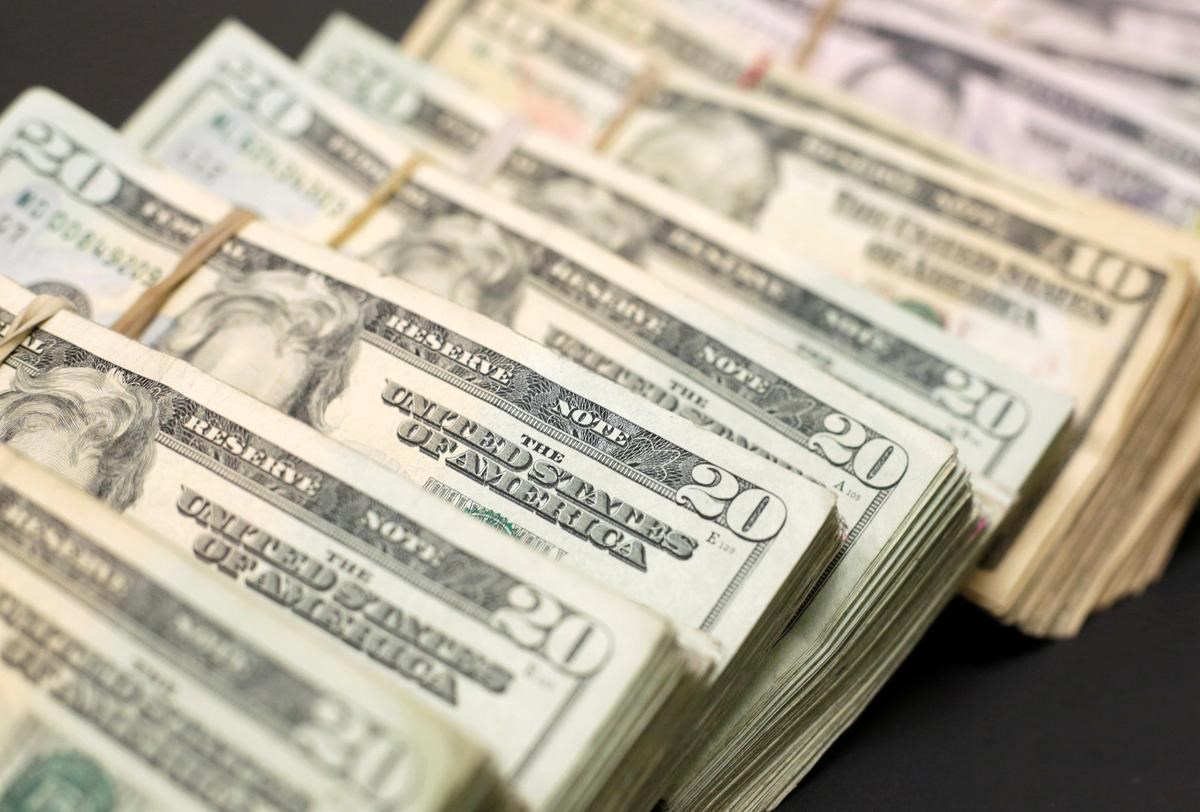US Treasury: debt default will make the world not invest in dollars
Adeyemo expresses that a default would not only worsen the US economy, but it would make the dollar less interesting to the world and more of a risk.
-

Bundles of banknotes of U.S. Dollars at a currency exchange shop in Ciudad Juarez, Mexico on January 15, 2018 (Reuters)
US Deputy Treasury Secretary Wally Adeyemo has pronounced what the US has been fearing the most for its economy - in case of a default, people around the world won't be as motivated to invest in products and instruments backed by the US dollar.
In an interview with NPR, Adeyemo said that a "US default would make US debt and economy worse," adding that it "would make people less willing to invest in dollar assets."
This update follows after US President Joe Biden confirmed on Monday that after talks with Congressional leaders, no deal was reached. House Speaker Kevin McCarthy separately said to CNN that they are still "far apart" in the talks, adding that it "seems like they want a default more than a deal."
The President's Council of Economic Advisers (CEA), a federal agency led by a team of experts, issued a report on Wednesday warning of the possible consequences that would ensue from the US defaulting on its debt payments.
One of the consequences listed in the report includes a series of economic shocks that would result in 8 million job losses this year's summer, as well as a 6% drop in GDP.
According to McCarthy, a deal should be reached this weekend in an attempt "to have a timeline to be able to pass it in both houses." Just two days ago, Biden told his press pool that talks were "moving along" but are "not there yet."
Read more: White House on raising US debt limit: 'We will not negotiate'
The White House and Republicans in Congress have been locked in a dispute on a deal that would avert an unprecedented national default as early as June.
US Treasury Secretary Janet Yellen warned Congress through ABC News last week that failing to resolve the debt ceiling issue on their part might create a "constitutional crisis" and send out a ripple effect across the financial markets.
"I don't want to consider emergency options. What's important is that members of Congress recognize what their responsibility is," she added.
The Republican bill to increase the debt limit and cut down on government spending was passed after a narrow 217-215 vote in the US House of Representatives by McCarthy. His proposal included raising the US debt limit by $1.5 trillion to avert the default of the world's biggest economy.
Senators have reiterated their call for Biden to negotiate the debt ceiling with McCarthy; calling on him to stop "playing Russian roulette" with the American economy.

 3 Min Read
3 Min Read










